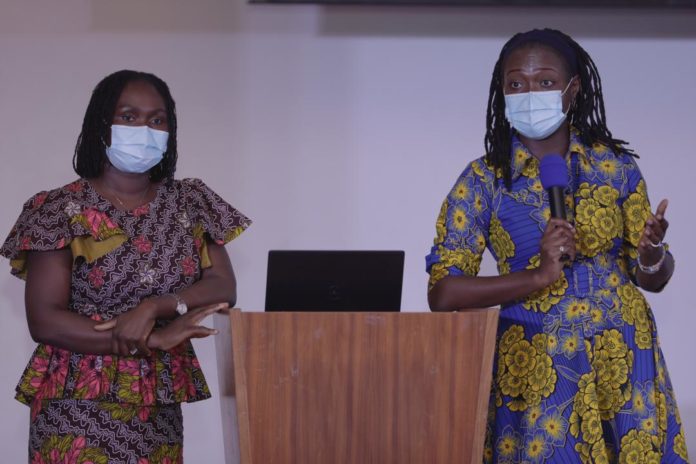|
Getting your Trinity Audio player ready...
|
A new research on a wide range of health interventions that will improve Ghana’s fragile healthcare delivery has been presented to the government, Friday.
Distinguished economists –from home and abroad –presented their findings as part of the “Ghana Priorities” project, an initiative being spearheaded by the National Development Planning Commission (NDPC), in collaboration with the Copenhagen Consensus Centre, an award-winning international think tank in Accra.
The project seeks to prioritise the best policies for the country’s future based on cost-benefit analysis.
Prof. Edward Nketiah-Amponsah of the University of Ghana, presented a research on the best current initiatives to limit the spread of malaria.
The team discovered that near-universal coverage of testing and treatment of malaria will yield phenomenal societal returns of 134 Ghana cedis for every one Ghana cedi spent.
Prof. Nketiah-Amponsah noted that by properly diagnosing malaria and giving early treatment to those infected, 435,000 severe cases and close to 25,000 deaths could be avoided between now and 2030.
Furthermore, increasing the number of bed nets distributed to 90% coverage has the potential of avoiding 12.9 million cases of uncomplicated malaria, some 700,000 severe cases, and 40,000 deaths and every cedi spent will yield 44 cedis in benefits.
Dr. Yaw Adusi-Poku, Manager of the National TB Control Programme, Dr. Brad Wong from Copenhagen Consensus and Jamie Rudman from the London School of Hygiene and Tropical Medicine studied three important interventions to deal with the burden of tuberculosis.
They included active case finding in high-risk populations, improved speed and accuracy of diagnosis through implementation of molecular diagnostic tools, as well as education anthe d counselling alongside Directly Observed Treatment Short-Course (DOTS), counselingre those receiving TB treatment adhere to the necessary treatment regime.
The study discovered that every cedi spent on these interventions will yield social and economic benefits worth GHc38, 166, and GHc190 respectively.
These benefit-cost ratios are some of the, largest in the entire Ghana Priorities project, which shows the importance and the potentials of addressing TB as a priority.
With regard to maternal and child health, Dr. Patrick Asuming, a Senior Lecturer at the University of Ghana Business School, advocated the need for a comprehensive, holistic approach that would scale up the Ghana Essential Health Intervention Programme (GEHIP) implemented in Northern Ghana, the NEWborn Health Intervention Study (NEWHINTS) undertaken in the middle belt, and ensuring access to Emergency Obstetric and Neonatal Care (EmONC).
He said the returns on investment would be substantial and save the nation about GHc6.1 billion over a six-year period.
He underlined the need for improvement in the collection of data and stored digitally for monitoring purposes,contithe need training of health workers, and enhancing the existing health facilities in rural areas.
Prof. Eugenia Amporfu of the Kwame Nkrumah University of Science and Technology ( KNUST) presented research that showed how Family Planning played an important role in the reproductive health and rights of women.
She was of the conviction that access to contraceptives helps empower women, increase investment in children, and contribute the poverty reduction and the overall development of society.
She noted that a reduction of 0.5 in the fertility rate leads to a 5.6 percent increase in Gross Domestic Product (GDP) per capita over a 20-year period.
Also, a decrease in unplanned pregnancies leads to a lower risk of health complications, maternal and child mortality, and malnutrition in children.
For married women, she said, the benefits of access to family planning are 34 times greater than the cost.
Further presentations were given on the areas of mental health, where screening people to detect cases of depression, anxiety and schizophrenia could yield societal benefits as high as seven Ghana cedis for every cedi invested, whilst the impact of screening and treating hypertension could yield benefits three times greater than the original investment.
At a more systemic level, Dr. Nkechi S. Owoo and Dr. Monica P. Lambon-Quayefio from the University of Ghana, made the case for better access to health care by expanding health insurance, operating and maintaining efficient ambulance networks in rural zones, and incentivising healthcare workers to move to remote areas.
They presented evidence showing that both the maintenance of the ambulance system and incentives for relocation could greatly benefit the rural population, with benefits at least 20-times greater than the cost of both initiatives.
It is expected that more teams of Ghanaian, regional and international economists will present their research on costs and benefits of the most promising policy pursuits to an eminent panel including Nobel Prize recipient Finn Kydland and six distinguished national economists.
The panel will rank all the interventions and establish priorities for a prosperous future.
Source: Daily Mail GH





